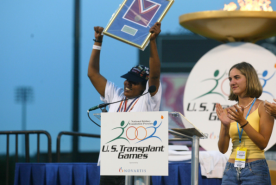Smoking is the top preventable cause of death in the U.S. It raises risks for various cancers, heart disease, and kidney problems.
Can smoking affect my kidneys?
Yes, for the following reasons:
- Smoking can affect medicines used to treat high blood pressure. Uncontrolled or poorly controlled high blood pressure is a leading cause of kidney disease.
- Smoking slows the blood flow to important organs like the kidneys and can make kidney disease worse.
For More Information
- Speak to your doctor
- Call NKF Cares toll-free at 855.NKF.CARES (855.653.2273)
- Contact other organizations like the American Heart Association and the American Cancer Society.








